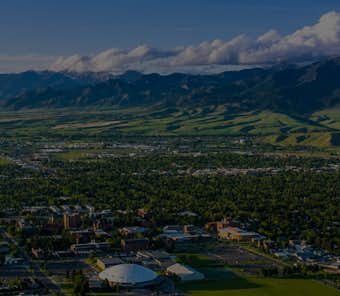
Study earth sciences abroad
Find programs that match your eligibility and aspirations then apply with reduced application fees, a free assessment and access to a dedicated advisor.
Find your perfect earth sciences programs abroad
Find earth sciences programs you love that match your needs & aspirations, where you stand a high chance of acceptance.
Earth Sciences degrees abroad
Earth sciences explore the composition, history, and processes of the planet we live on. It’s a multidisciplinary field that draws upon several other subjects, including geography, biology, chemistry, physics and engineering.
As an earth sciences student, you’ll look at how the world came to exist and how it has developed over time. As well as gaining a detailed understanding of the Earth’s inner workings, you’ll study natural phenomena like volcanic eruptions and earthquakes. You’ll also consider how we can protect our planet from the consequences of climate change, deforestation and pollution.
Weather systems, landscapes and natural resources vary hugely between countries and continents. Studying abroad is a fantastic opportunity to take your learning beyond the textbook and explore the world’s natural phenomena first-hand.

Why use Studee?
-
Find your ideal program
Filter 10,000s of programs down to a shortlist perfect for you, where you have a strong chance of getting admitted
-
Apply online via Studee
Complete our application form and enjoy reduced application fees and access to unique Studee scholarships for many universities
-
We assess within 48hrs
We complete an 85-point assessment within 2 business days, help you with improvements then submit to your university
-
University offer in 2-4 weeks
We chase the university for your admission decision and keep you updated. We all celebrate your admission!
All our services are 100% free as we're funded by universities. You pay deposits and tuition fees directly to the university.

Earth Sciences program structure
Bachelor’s degrees in earth sciences normally take three or four years to finish. The length of your BSc will depend on where you choose to study and whether or not you complete a placement between your second and final years.
If you’re hoping to explore the wildly diverse landscapes of the US, your undergraduate degree will last four years. The American liberal arts model insists that students spend the first half of their program studying general education, before focusing on science-specific modules for the final two years.
Postgraduate programs are available for students looking to dive into some original and independent research. Master’s programs usually require one year of full-time study or two years of part-time learning. A PhD will take several years on top of this.
To help you get to grips with the theoretical and practical aspects of the subject, your timetable will feature a mix of lectures, seminars, tutorials, practical workshops, laboratory sessions and field trips.
Since earth sciences is such a broad and far-reaching field, most universities have plenty of elective modules to choose from. That said, you’ll probably still attend mandatory classes in these core topics:
- Earth processes and structures
- Natural resources and materials
- Structural geology and tectonics
- Weather and climate
- Oceanography
- Introduction to geoscience
- Threats and deformation
- Mathematical skills for earth sciences
Types of earth sciences degrees
Best countries to study earth sciences
Earth Sciences study abroad programs
Earth sciences undergraduate programs
Bachelor's in earth sciences
-

Physical Geography and Earth and Ocean Sciences - BSc University of Victoria (in partnership with Kaplan International), Canada
- Program type
- Bachelor's
- Duration
- 4 years
- Annual tuition fee
-
29,716 CAD
Fees are displayed in the university's local currency
- Start date
- January, May, September
-

Chemistry and Earth Sciences - BSc Simon Fraser University, Canada
- Program type
- Bachelor's
- Duration
- 4 years
- Annual tuition fee
-
47,386 CAD
Fees are displayed in the university's local currency
- Start date
- January, May, September
-
Earth & Environmental Science - BA Wilkes University, USA
- Program type
- Bachelor's
- Duration
- 4 years
- Annual tuition fee
-
42,268 USD
Fees are displayed in the university's local currency
- Start date
- January
-

Earth and Environmental Science - BSc College of Staten Island, USA
- Program type
- Bachelor's
- Duration
- 4 years
- Annual tuition fee
-
18,600 USD
Fees are displayed in the university's local currency
- Start date
- January, August
-
Earth and Environmental Sciences - BSc University of Illinois at Chicago, USA
- Program type
- Bachelor's
- Duration
- 4 years
- Annual tuition fee
-
35,452 USD
Fees are displayed in the university's local currency
- Start date
- January, August
Associate in earth sciences
-

Earth & Environmental Science - ASOT Lane Community College, USA
- Program type
- Associate
- Duration
- 2 years
- Annual tuition fee
-
11,500 USD
Fees are displayed in the university's local currency
- Start date
- September, January, March
-

Earth Science - ASc Lake Land College, USA
- Program type
- Associate
- Duration
- 2 years
- Annual tuition fee
-
13,900 USD
Fees are displayed in the university's local currency
- Start date
- June, August, January
-
Earth Sciences - ASc Santiago Canyon College, USA
- Program type
- Associate
- Duration
- 2 years
- Annual tuition fee
-
10,680 USD
Fees are displayed in the university's local currency
- Start date
- June, August, February
-
Earth Sciences - AA Seattle Central College, USA
- Program type
- Associate
- Duration
- 2 years
- Annual tuition fee
-
10,575 USD
Fees are displayed in the university's local currency
- Start date
- June, September, January, April
-
Earth Sciences (Contra Costa College) - ASc Colleges of Contra Costa, USA
- Program type
- Associate
- Duration
- 2 years
- Annual tuition fee
-
9,840 USD
Fees are displayed in the university's local currency
- Start date
- August, January
Diploma in earth sciences
-

Earth Sciences - Dip Yukon University, Canada
- Program type
- Undergraduate diploma
- Duration
- 2 years
- Annual tuition fee
-
12,600 CAD
Fees are displayed in the university's local currency
- Start date
- September
Certificate in earth sciences
-
Applied Earth & Environmental Studies - Cert Coast Mountain College, Canada
- Program type
- Undergraduate certificate
- Duration
- 1 year
- Annual tuition fee
-
14,127 CAD
Fees are displayed in the university's local currency
- Start date
- September, January
Earth sciences graduate programs
Master's in earth sciences
-

Earth & Planetary Sciences - MSc McGill University, Canada
- Program type
- Master's
- Duration
- 2 years
- Annual tuition fee
-
19,728 CAD
Fees are displayed in the university's local currency
- Start date
- January, September
-

Earth and Energy Resources Leadership - MEERL Queen's University, Canada
- Program type
- Master's
- Duration
- 2 years
- Annual tuition fee
-
28,059 CAD
Fees are displayed in the university's local currency
- Start date
- September
-
Earth and Environmental Sciences - MSc Murray State University, USA
- Program type
- Master's
- Duration
- 2 years
- Annual tuition fee
-
8,640 USD
Fees are displayed in the university's local currency
- Start date
- August, January
-

Earth and Environmental Sciences - MSc Dalhousie University, Canada
- Program type
- Master's
- Duration
- 2 years
- Annual tuition fee
-
18,546 CAD
Fees are displayed in the university's local currency
- Start date
- January, May, September
-

Earth and Environmental Sciences - MSc McMaster University, Canada
- Program type
- Master's
- Duration
- 2 years
- Annual tuition fee
-
17,096 CAD
Fees are displayed in the university's local currency
- Start date
- September
Doctorate in earth sciences
-

Earth Sciences - PhD University of Manitoba, Canada
- Program type
- Doctorate
- Duration
- 4 years
- Annual tuition fee
-
8,859 CAD
Fees are displayed in the university's local currency
- Start date
- September
-

Earth, Space, and Physical Science - PhD University of Lethbridge, Canada
- Program type
- Doctorate
- Duration
- 4 years
- Annual tuition fee
-
14,208 CAD
Fees are displayed in the university's local currency
- Start date
- January, May, September
Diploma in earth sciences
-

Science and Technology: Earth Science - PGDip Massey University, New Zealand
- Program type
- Postgraduate diploma
- Duration
- 1 year
- Annual tuition fee
-
40,870 NZD
Fees are displayed in the university's local currency
- Start date
- July, November, February
Future earth sciences careers
As an earth sciences graduate, you’ll have the theoretical knowledge and practical capabilities needed to get your career off the ground. Your problem-solving, analytical, and critical reasoning skills will be desirable to an array of employers, including environmental consultancies, energy companies, conservation organizations and governments.
Here are some of the exciting positions you could land:
- Engineering geologist
- Geoscientist
- Geotechnical engineer
- Environmental consultant
- Minerals surveyor
- Environmental journalist
- Environmental lawyer
- Crisis and disaster management expert
With so many career opportunities available, figuring out what to do after graduation can be tricky. Your university’s career service can point you in the direction of work experience opportunities and polish your resume.





















